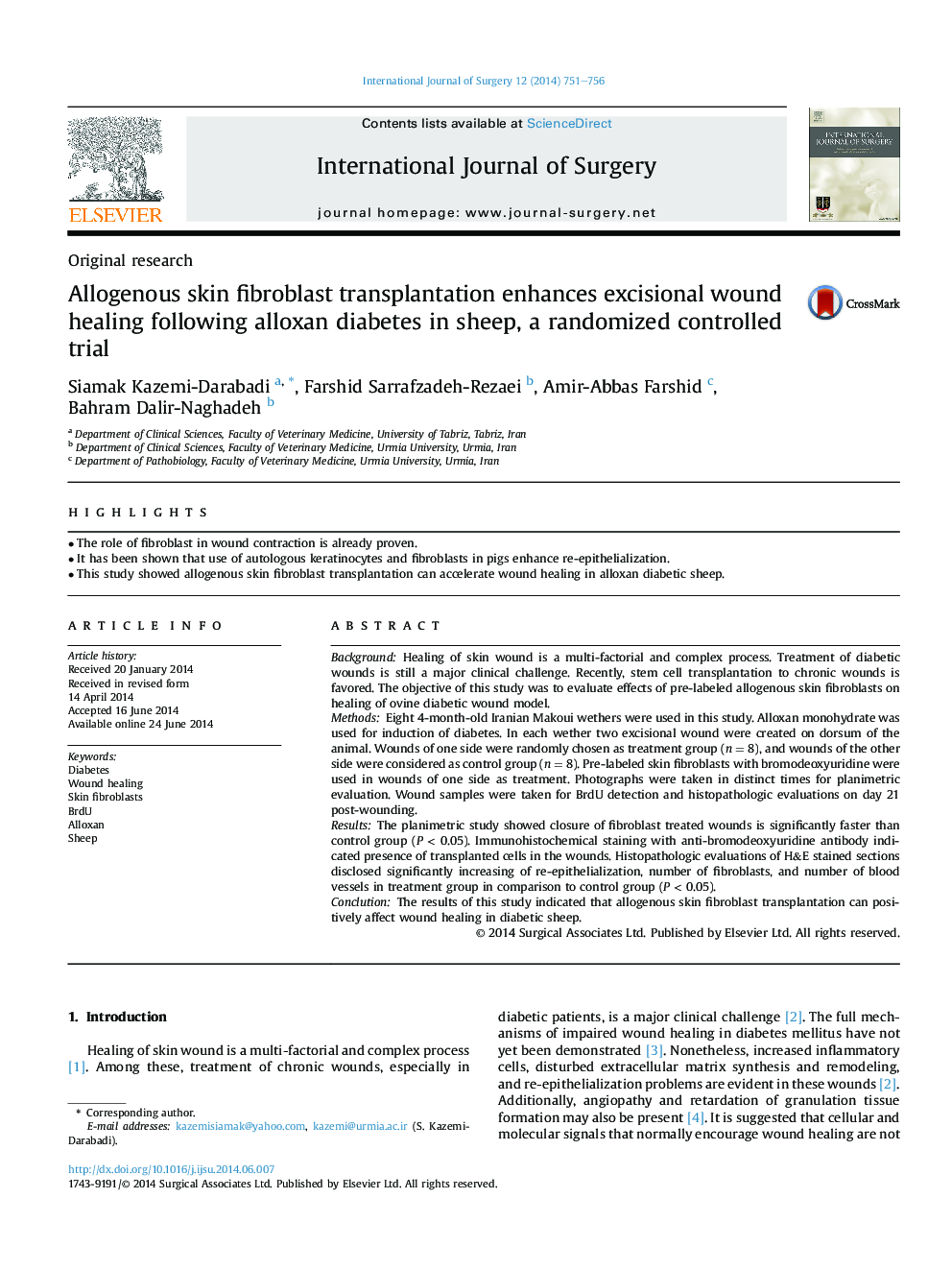| کد مقاله | کد نشریه | سال انتشار | مقاله انگلیسی | نسخه تمام متن |
|---|---|---|---|---|
| 4286539 | 1611987 | 2014 | 6 صفحه PDF | دانلود رایگان |
• The role of fibroblast in wound contraction is already proven.
• It has been shown that use of autologous keratinocytes and fibroblasts in pigs enhance re-epithelialization.
• This study showed allogenous skin fibroblast transplantation can accelerate wound healing in alloxan diabetic sheep.
BackgroundHealing of skin wound is a multi-factorial and complex process. Treatment of diabetic wounds is still a major clinical challenge. Recently, stem cell transplantation to chronic wounds is favored. The objective of this study was to evaluate effects of pre-labeled allogenous skin fibroblasts on healing of ovine diabetic wound model.MethodsEight 4-month-old Iranian Makoui wethers were used in this study. Alloxan monohydrate was used for induction of diabetes. In each wether two excisional wound were created on dorsum of the animal. Wounds of one side were randomly chosen as treatment group (n = 8), and wounds of the other side were considered as control group (n = 8). Pre-labeled skin fibroblasts with bromodeoxyuridine were used in wounds of one side as treatment. Photographs were taken in distinct times for planimetric evaluation. Wound samples were taken for BrdU detection and histopathologic evaluations on day 21 post-wounding.ResultsThe planimetric study showed closure of fibroblast treated wounds is significantly faster than control group (P < 0.05). Immunohistochemical staining with anti-bromodeoxyuridine antibody indicated presence of transplanted cells in the wounds. Histopathologic evaluations of H&E stained sections disclosed significantly increasing of re-epithelialization, number of fibroblasts, and number of blood vessels in treatment group in comparison to control group (P < 0.05).ConclutionThe results of this study indicated that allogenous skin fibroblast transplantation can positively affect wound healing in diabetic sheep.
Journal: International Journal of Surgery - Volume 12, Issue 8, August 2014, Pages 751–756
